Simplify:
(a^3*a^4)^2
a^14
The equation, in gradient-intercept form, for the graph below.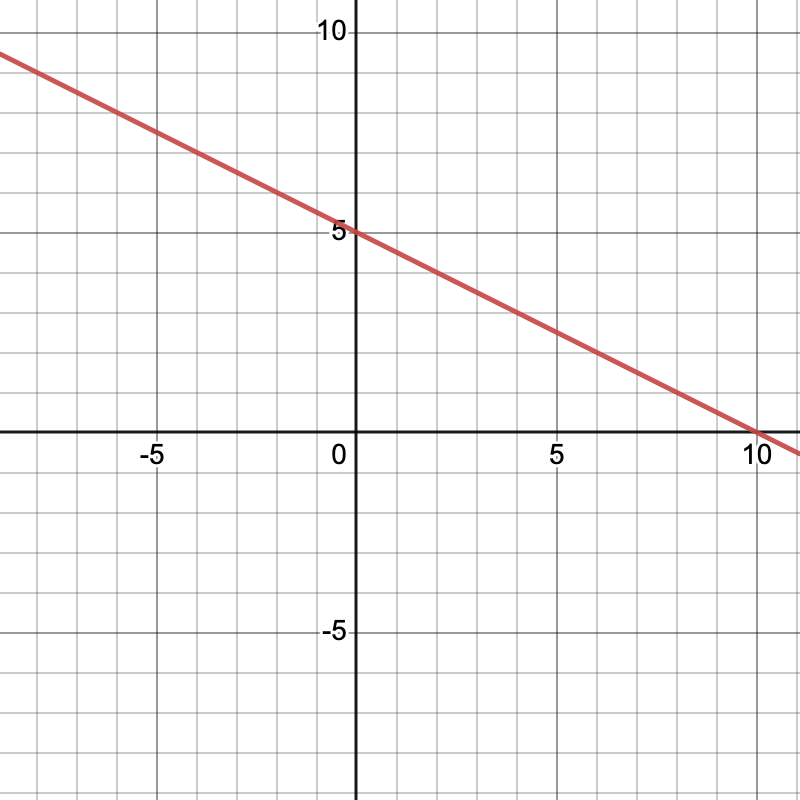
What is
y=-1/2x+5
The solution to the following system of equations: 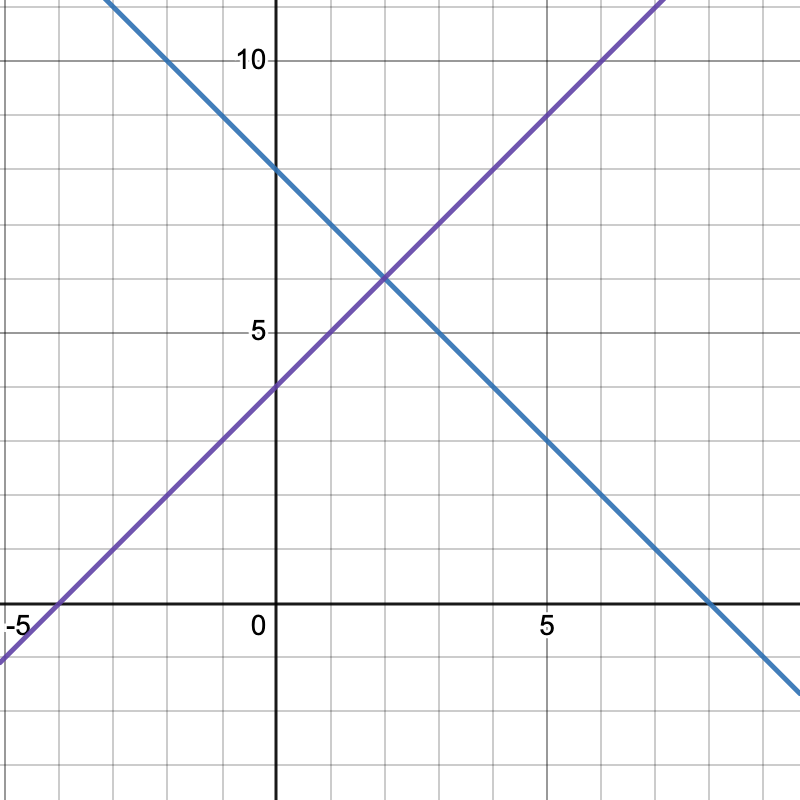
What is (2, 6)?
Expanded form of
(x-3)(x+15)
What is
x^2+12x-45
The solution(s) to
7x^2-28=0
What is
+-2
Simiplify:
sqrt(54)
3sqrt(6)
The equation, in standard form, for the graph below.
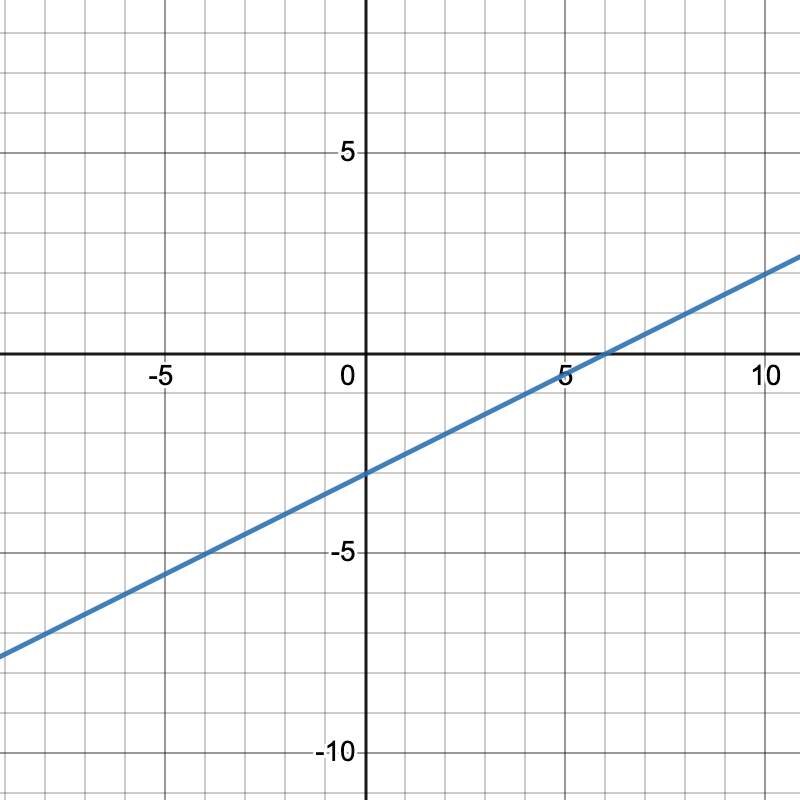
What is
3x-6y=18
The solution to the following system of equations:
4x-5y=20
4x+8y=-84
What is (-5, -8)?
Factored form of
x^2+11x-26
What is
(x+13)(x-2)
The solution(s) to
x^2-16x+36=0
What is
x=8
Simplify:
sqrt(12)*2sqrt(3)
12
The equation, in gradient-intercept form, for a line with a y-intercept of -6 and parallel to
y=3/4x+11
What is
y=3/4x-6
The solution to the following system of equations:
3x-6y=18
x-y=7
What is (8, 1)?
Factored form of
3x^2+23x-8
What is
(3x-1)(x+8)
The solution(s) to
5x^2=9x+10
What is
(9+-sqrt(281))/10
The simplified form of
(4sqrt(50))/sqrt(2)
What is 20?
The equation, in gradient-intercept form, for a line with a y-intercept of 7 and perpendicular to
y=-8x-9
What is
y=1/8x+7
The solution to the following system of equations:
y=3/5x+1
y=3/5x-1
What is no solution?
The completed square of
x^2-10x+11
What is
(x-5)^2-14
The equation, in standard form, of the following graph: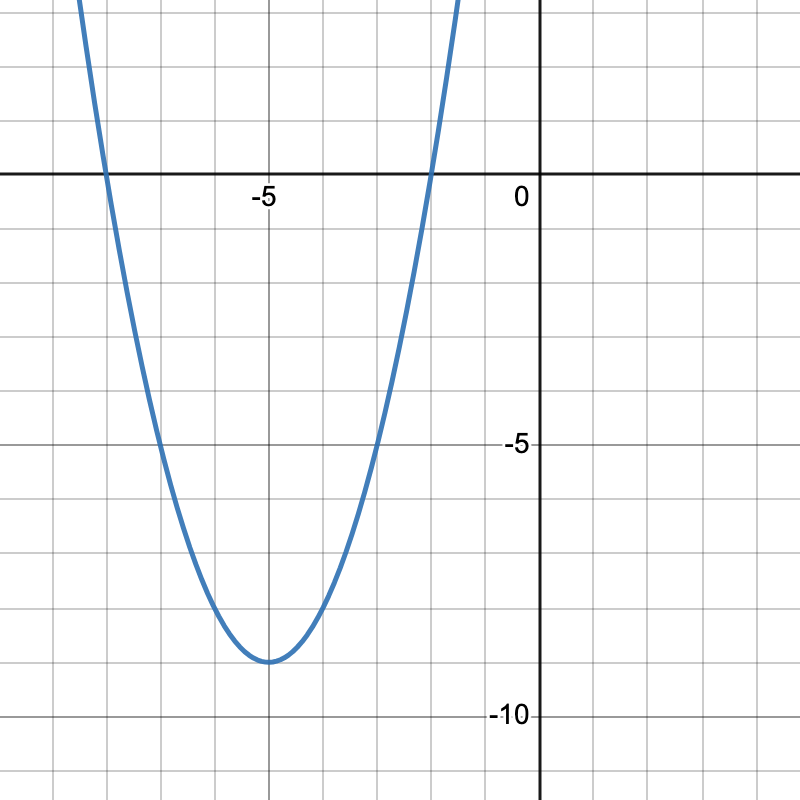
What is
y=x^2+10x+16
Simplify:
(sqrt(99)-sqrt(11))^2
44
The equation, in standard form, for a line passing through (8, 1) and (2, -5).
What is
x-y=7
The solution to
3x=y-12
x+4y=22
What is (-2, 6)?
The completed square of
5x^2+40x+7
What is
5(x+4)^2-73
The equation, in standard form, of the following graph: 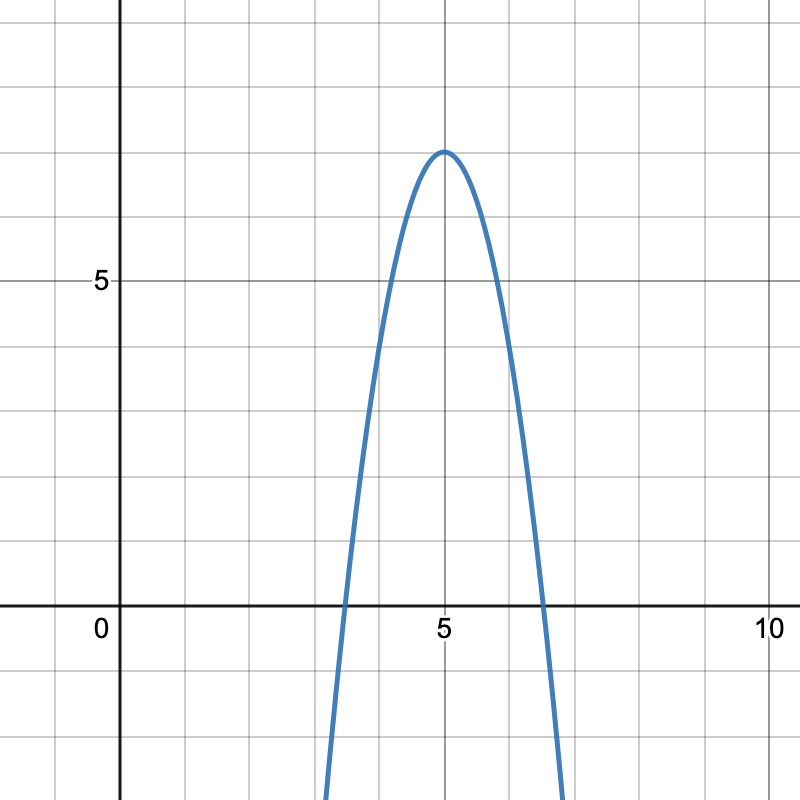
What is
y=-3x^2+30x-68